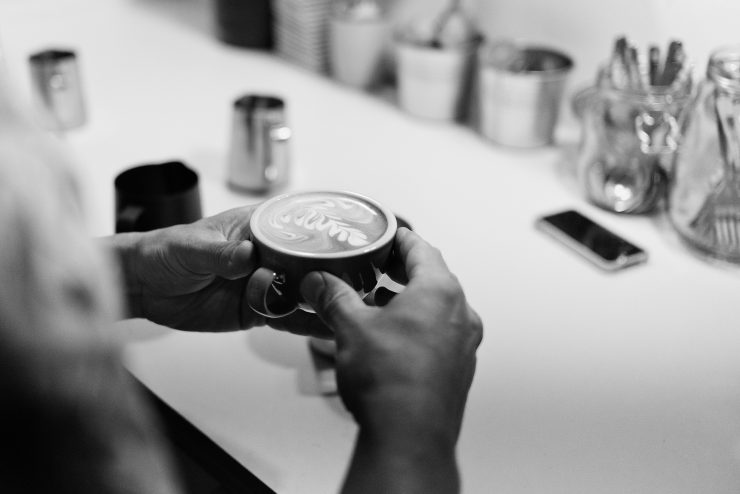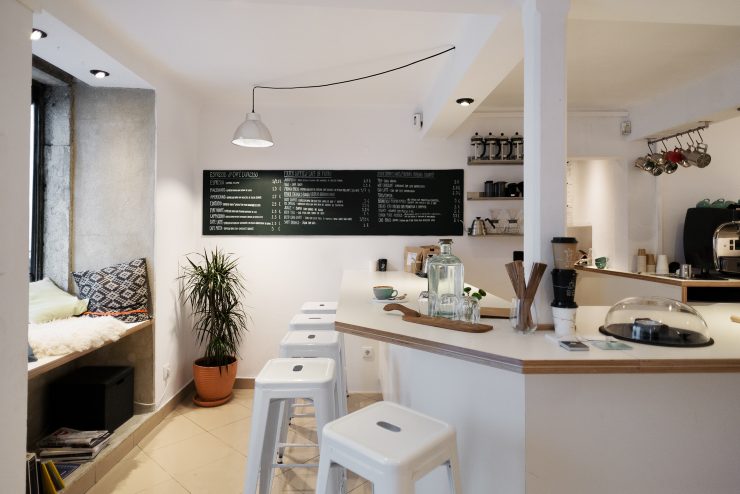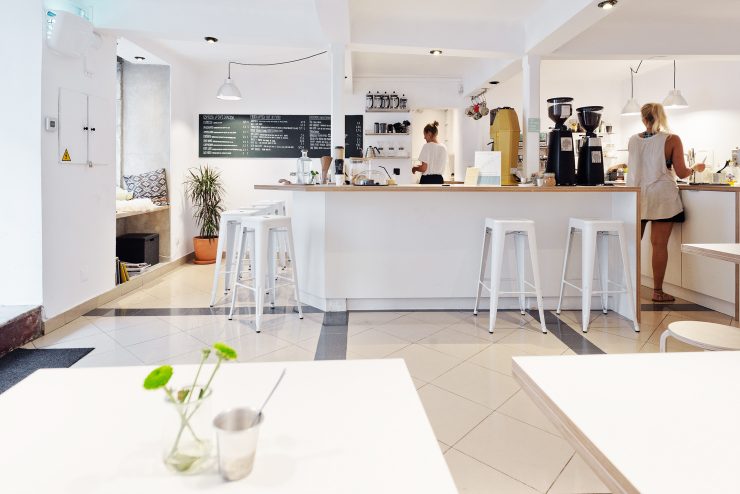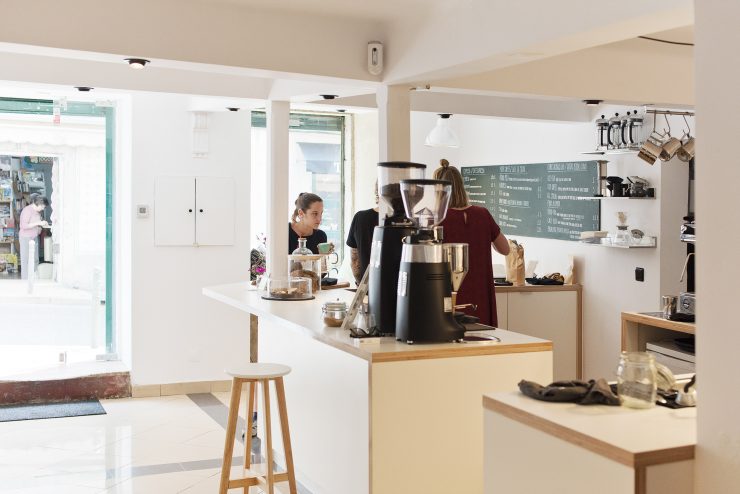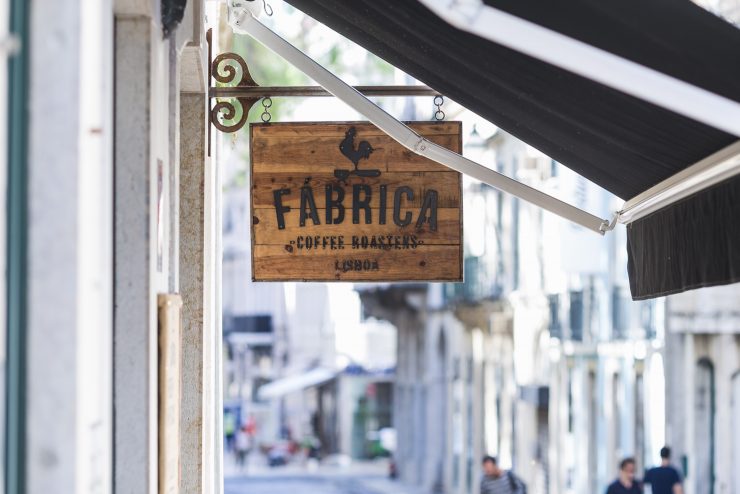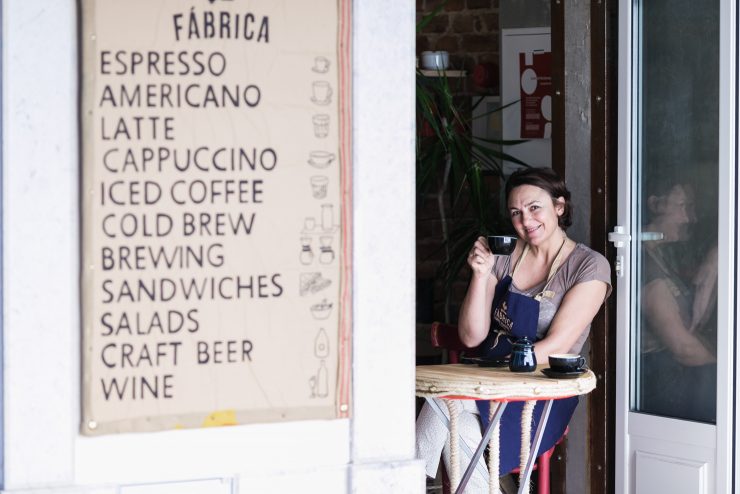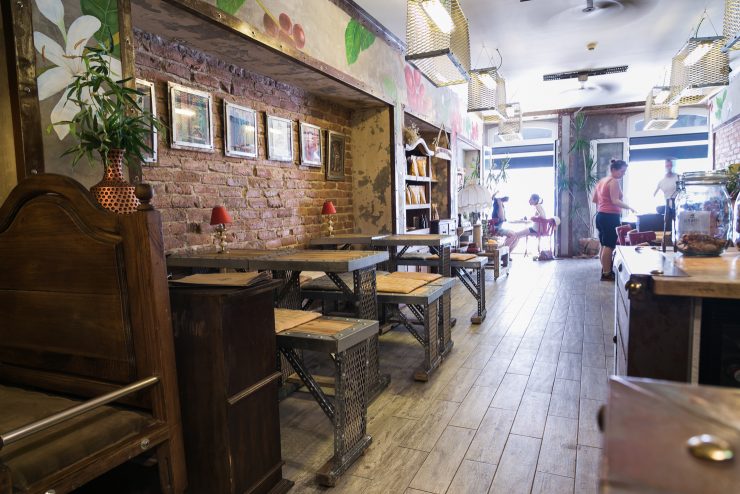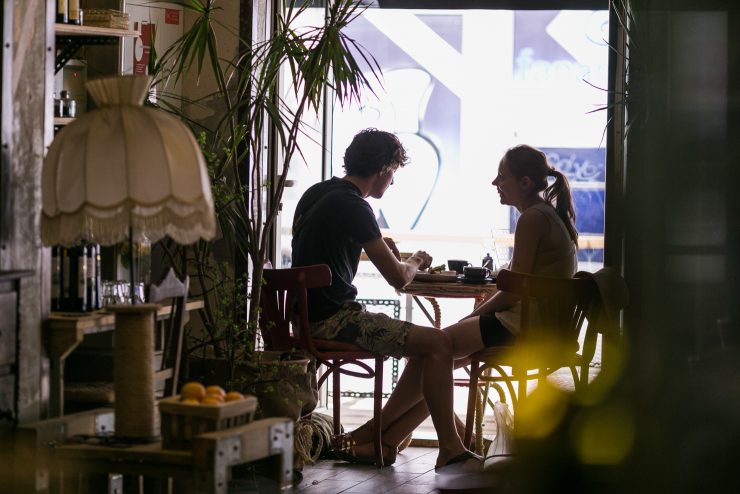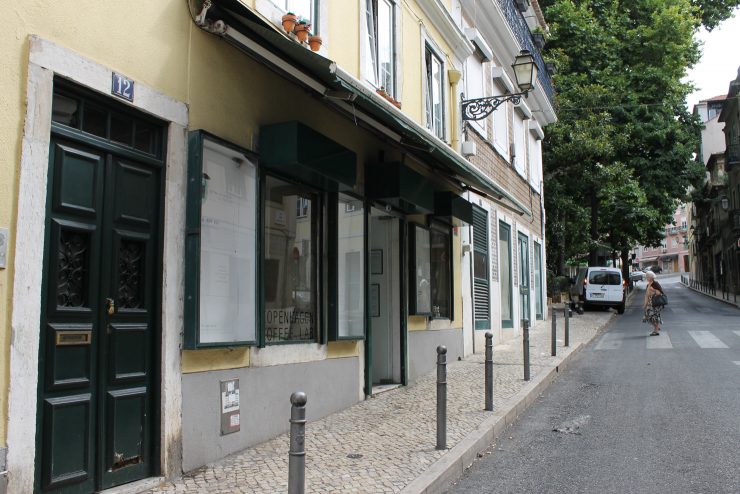
Photo courtesy Fabrica.
Portugal’s renowned coffee culture goes back to the 18th century when its largest colony, Brazil, got hold of the first arabica seeds. It was 1727 when Francisco de Melo Palheta, a Portuguese lieutenant, was said to have smuggled seeds of coffee out of French Guiana after having seduced the governor’s wife. He then brought the seeds to be first planted in Para, the north of Brazil, and as a result caused the cultivation to expand throughout the southeastern region. The rest is history: Brazil played a leading role in supplying the world’s coffee and at the same time, Portuguese coffee culture intensified, notably in Lisbon and Porto.
In Lisbon, the intake of coffee happens all day. For breakfast, many will have a galão, which is espresso with steamed milk (the Portuguese version of the Spanish cafe con leche); in mid-morning, some order a garoto (an espresso with a little bit of milk foam, similar to a macchiato). After lunch, it is time for a bica, which is how Lisboetas order an espresso. Many of them tell me that the term is an acronym for Beba Isto Com Açúcar (“drink this with sugar”), but some explained it as a reference to the way the coffee flows out of the espresso machine, which resembles a water fountain (in Portuguese, bica). Legend or not, I tend to believe the first explanation, as I felt very tempted to use the cute little sugar packets that are served alongside the espressos in Lisbon. I blame the robusta-arabica blends, the over-extraction, and the sometimes over-roasted beans, all of which can make the coffee ritual in Lisbon a very bitter experience, no matter how many pasteis de nata custard-filled pastry you have with it!
Thankfully, the landscape is starting to change now. Lisboetas can find lighter roasts and other methods of coffee preparation, such as pour-over coffee (not common at all in cafes in Portugal) thanks to Copenhagen Coffee Lab and Fábrica Coffee Roasters, the first Third Wave warriors in the country’s capital.
Danish partners Helle Jacobsen, Susan Jacobsen, and Ida de Magos chose Principe Real, a recently gentrified neighborhood with charming hilltops, to open Copenhagen Coffee Lab. Magos’ family is Portuguese, and after spending many vacations in Portugal and falling in love with the old-fashioned charm of Lisbon cafes, she managed to convince the other two partners to bring their Nordic expertise into Lisbon’s vibrant coffee culture.
Their beans are roasted in Amager, an island district that overlaps Copenhagen, and shipped to Lisbon many times a month to ensure freshness. They are roasted lighter than the regular Portuguese blends and the drink menu does not reference bicas or galãos, but rather cappuccinos, pour-overs, and cortados. The main goal of Copenhagen Coffee Lab is to diversify the coffee drinks and extraction methods that are offered to Lisbon consumers—and to the owners’ surprise, many Lisboetas are trying and approving other coffee drinks besides bica.
Copenhagen Coffee Lab is located at Rua Nova da Piedade, 10. Follow them on Facebook, and visit their official website.
Not far from there, Stanislav Benderschi opened Fábrica Coffee Roasters last June. The cafe and roastery is located in the heart of the Avenida Liberdade area, a boulevard with several high-end fashion retailers. Benderschi is half-Russian, half-Portuguese, and fell in love with specialty coffee when he lived in Germany in 2010. His goal is similar to that of Copenhagen Coffee Lab’s partners: showing Lisboetas that there is more to coffee than the traditional Portuguese styles.
Benderschi roasts the beans in the cafe area in a Probat roaster bought in Germany and prepares espresso-based drinks with a La Marzocco GB5. So far, he has seen a great influx of tourists. Locals are still getting acquainted with the concept and Fábrica has also tried to accommodate its menu to Lisbon consumers by offering sandes, a type of sandwich very common in Lisbon cafes. Benderschi plans to expand to Portuguese homes by setting up an online shop for Fábrica’s beans in the hopes that more and more Portuguese people will try specialty coffee.
Next time you are in Lisbon, don’t settle for just the usual bica, but instead go to these two cafes for an incredible experience. And please: keep those pasteis de nata on your list! Portuguese tarts will blow your mind.
Fábrica Coffee Roasters is located at Rua das Portas de Santo Antão, 136. Follow them on Facebook, and visit their official website.
Juliana Ganan is a Brazilian coffee professional and journalist. Read more Juliana Ganan on Sprudge.
The post In Lisbon, Two Cafes Help Lead The Specialty Coffee Movement appeared first on Sprudge.


